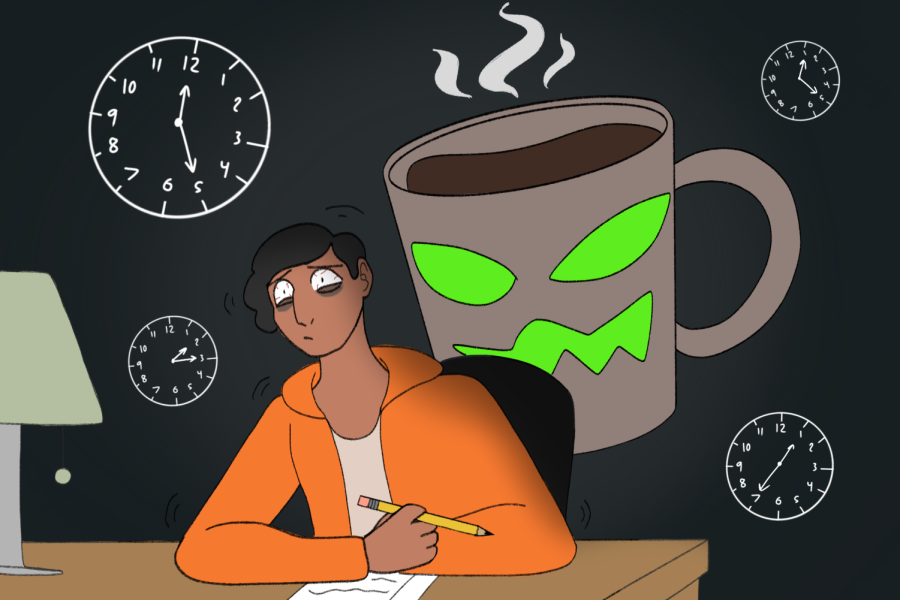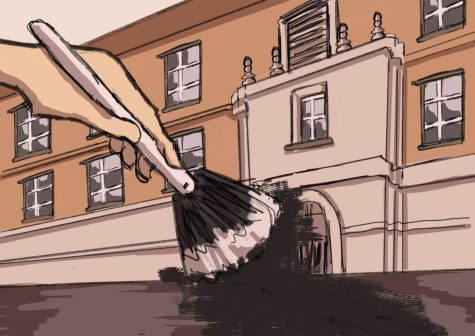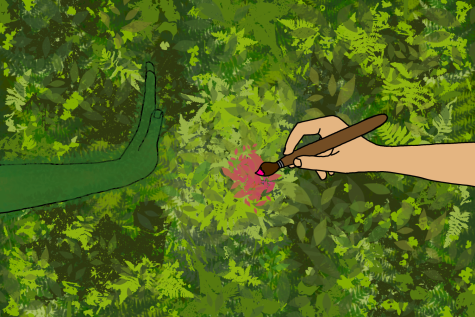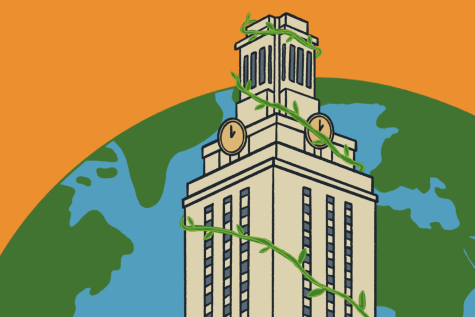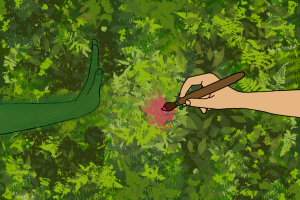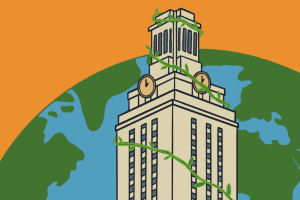Caffeine: Blessing, curse
November 28, 2022
With finals around the corner, it’s typical to find a fellow Longhorn half-awake in the Perry-Castañeda Library with their laptop open and a coffee in hand. It keeps us awake, helps us concentrate and is arguably a student’s most reliable friend in times of stress. However, it can often become a toxic friendship.
While it erases the feeling of sleepiness, consuming caffeine on a regular basis raises other health concerns. Rapid heartbeats, diarrhea, increased blood pressure and increased anxiety are the most common side effects.
Instead of turning to caffeine, it’s crucial for Longhorns to listen to their bodies’ needs and rest during times of high stress, like finals. Being critical of your personal caffeine consumption is important to physical health and even counteracts the harmful caffeine culture “work mindset.”
Corporate communications sophomore Luke Montgomery said that drinking caffeine has become a habit, but he notices an increase when the semester picks up.
“Depending on the assignments, I probably drink caffeine around four to six times a week,” Montgomery said. “I like how it tastes, and I use it as a pick me up.”
The National Library of Medicine conducted a study and found that 92% of college students consume some form of caffeine, with 79% using caffeine to “feel awake.” It is undeniable that caffeine is embedded in college culture.
Nicole Murry, clinical assistant professor in the School of Nursing, said that while caffeine is effective in keeping students awake, it’s important to realize the brain can only take in so much information.
“You’re essentially filling your brain with information, and at some point, you have to rest your mind,” Murry said. “Rest allows the information to transfer from your short-term memory to your long-term memory.”
As students continue to consume caffeine, they risk harming their brain. Drinking more and more caffeine can create a dependency. The more one consumes caffeine, the more caffeine is needed to reach the same effect. As this tolerance for caffeine goes up, so does the risk of side effects like headaches, irritability and depression.
UT students have strong ties with our local coffee culture. One can always find students at local businesses, like Medici Roasting, Cappy’s Cafe and Trippy Buck Coffee. The constant access to caffeine and its popularity is ultimately rooted in the “hustle culture” felt by students attending a prestigious institution like UT.
“UT is a good school, so mostly everyone here cares about their studies and grades,” Montgomery said. “To be honest, it’s way more important for me to get stuff done than not drink caffeine.”
As the semester wraps up, students may feel scared of falling behind and feel anxiety to succeed. The mindset that students have to push themselves to the limit perpetuates the culture that misery and sacrifice of personal well-being is inevitable in achievement.
This especially comes into play during finals season, an important time that can determine a student’s GPA, financial aid and overall future. With such a heavy pressure to succeed, many students become reliant on caffeine as the easiest and quickest way to boost one’s energy while studying.
“There are so many competing interests when it comes to student’s sleep,” Murry said. “It’s important to remember the role of sleep in being a good student.”
In order to break free from a caffeine reliance, students need to give their body time to rest. Rest allows the brain to function correctly, improves mood and benefits overall health. Students’ long-term health should always be prioritized over academic performance. Caffeine isn’t the solution.
Leon is a journalism sophomore from Houston, Texas

